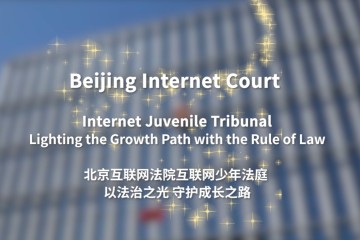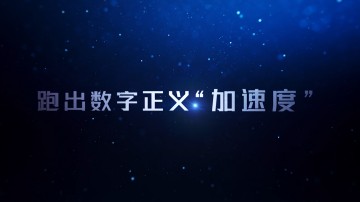Court hears nation's first AI voice rights case
The hearing on China's first case concerning the right to voice generated by artificial intelligence started on Tuesday at the Beijing Internet Court, which has to decide if an AI-powered imitation of a person's voice can be considered as the person's original voice, and if the technology used in the process infringes upon the person's right to voice.
The litigant is a voice-over artist surnamed Yin, who discovered in May that her voice was being used in many audiobooks circulating online for which she had not signed any contracts or granted permission.
On probing further, she realized that an AI-powered application was helping the perpetrators reproduce her voice and sell the rights to various platforms for profits.
Yin sued five companies, including the app operator, the provider of the AI-generated software and an enterprise that had recorded her voice, claiming that their behavior and practices were infringing upon her right to voice.
"I've never authorized anyone to make deals using my recorded voice, let alone process it with the help of AI, or sell the AI-generated versions," she told the court.
Yin has urged the court to direct the defendants to immediately cease infringement, make a public apology and pay her as compensation 600,000 yuan ($83,616) — 500,000 yuan for economic losses and 100,000 yuan for the mental anguish she is suffering in the process.
"I make a living with my voice. The audiobooks that use my AI-processed voice have affected my normal work and life," she said.
Yin's lawyer argued in court that those unauthorized audiobooks, if not properly managed, could lead to her original voice being leaked.
Meanwhile, the defendants contended that the AI-processed voice was not same as Yin's original voice, and the two should be distinguished.
The court said the verdict will be announced at a later date.
Under the Civil Code, a fundamental law for regulating civil activities, the protection of a person's voice refers to the relevant provisions on portrait rights. It means that no individual or organization can distort, deface or forge someone's voice, or exploit it through information technology.
Generation, use or disclosure of someone's voice will not be allowed without his or her permission, according to the law.
Given that the case is related to both the protection of personality rights and technological development, Zhao Ruigang, the presiding judge of the case, said the ruling will take some time.
With the rapid development of AI-generated products and services in recent years, there has been a growing number of related disputes.
Liu Bin, a Beijing lawyer, said that law professionals in both China and abroad are exploring better ways to resolve AI-related disputes. "The legal practice will help us find a balance between technological advances and rights protection," he added.

 Judicial White Paper
Judicial White Paper
 Play
Play Play
Play Online Lawsuit Guide
Online Lawsuit Guide Beijing Internet Court Lawsuit Service WeChat Account
Beijing Internet Court Lawsuit Service WeChat Account  Beijing Internet Court WeChat Account
Beijing Internet Court WeChat Account